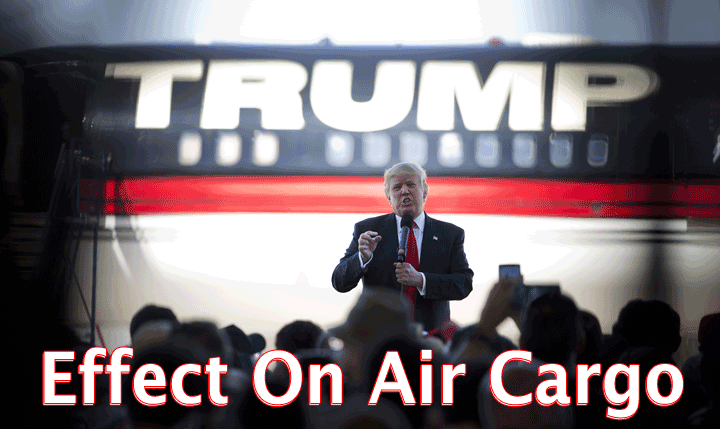 Click To Read Part I |
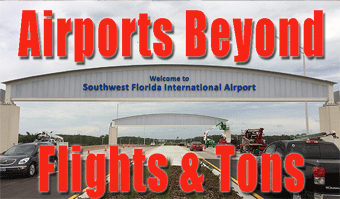 Click To Read Part II |
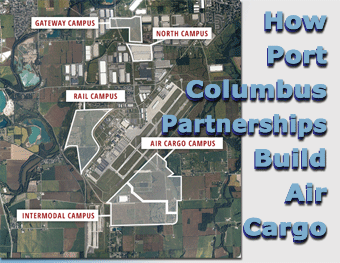 Click To Read Part III |
 |
 #INTHEAIREVERYWHERE |
| Vol. 16 No. 17 | Wednesday
February 15, 2017 |
|
Jeffrey
Van Haeften began his tenure as
Vice President Cargo Global Sales
at Emirates SkyCargo almost two
years ago, having previously gained
some vital training in this ever-widening
and specialized air cargo business
at Martinair Holland, DHL Global
Forwarding, and CEVA Logistics.
|
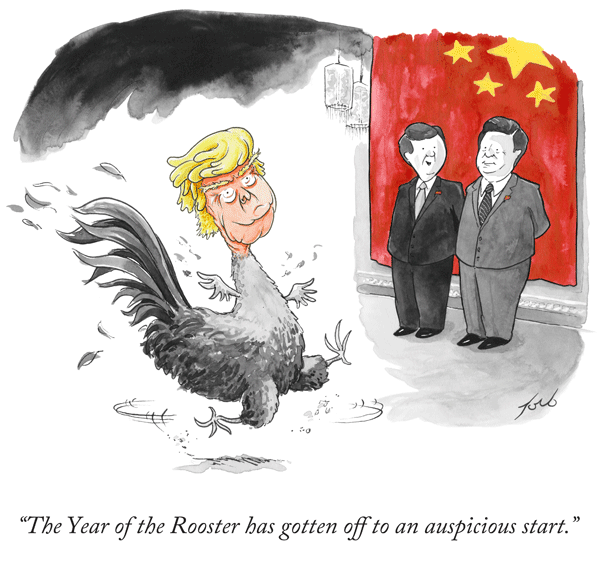 |
Visa Threat
“My concern,” said Subramanian,
“is that in his last debate,
Trump said, ‘H-1B, whatever
it is, I use it but I don’t
like it.’ So Far, Business Steady
India Will Look For Markets Minus U.S. 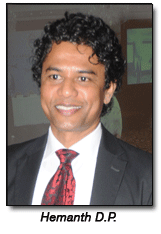 Quite a few transportation experts mentioned
remarks from Hemanth D. P., Chief Operating
Officer, Aero-Commercial, Cargo and
Asia Pacific Flying School, GMR Hyderabad
International Airport.
Quite a few transportation experts mentioned
remarks from Hemanth D. P., Chief Operating
Officer, Aero-Commercial, Cargo and
Asia Pacific Flying School, GMR Hyderabad
International Airport. “The orders for exports to the U.S. in pharma, electronics, and automotive were done at least six to eight months ago,” Hemanth said. “The Trump Administration’s trade policies will take time to kick in and by that time, hopefully, other nations will open their gates wider.” Exporters, nevertheless, are keeping their fingers crossed since they have been unable to decipher what the Trump Administration will come up with next in its protectionist tirade. A Better Idea
The Ford Motor Company is among the
many U.S. companies with manufacturing
facilities in India. Customs Tariffs In The Wings?
If President Trump goes through with
his protectionist measures, India
would cease being a viable location
for these manufacturers because they
will face high customs duties for
exports to the U.S. Additionally,
India will not be the first choice
for those who source goods from the
country for the U.S. markets, since
these will be more expensive. Voice Of Freight Forwarders
IT Impact?
Both Kulkarni (and Samir Shah) did
caution that the Indian IT industry
“might take a beating”
if Trump succeeded in boosting manufacturing
back in America. Protectionist Natural Thing To Do
Ramesh Mamidala, and a host of other
cargo stakeholders, held the following
view: Time & The River
Here Is The Hope
Taking the ‘think positive’
line a bit further, FFFAI’s
Shah, in fact, exuded confidence.
Will Pharma India Soften?
Indeed, pharma exports from India
could see a dive.
|
 |
If
You Missed Any Of The Previous 3 Issues
Of FlyingTypers Access complete issue by clicking on issue icon or Access specific articles by clicking on article title |
||
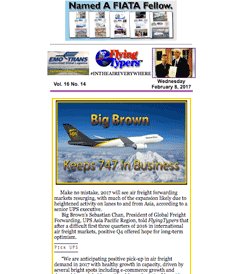 Vol.
16 No. 14 Vol.
16 No. 14Big Brown Keeps B747 In Business Chuckles for February 8, 2017 One From The Heart Parisi Moving Forward Since 1778 Letters to the Editor for February 8, 2017 |
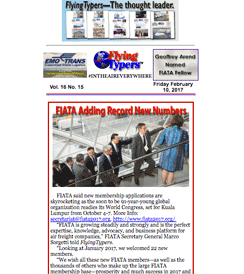 Vol.
16 No. 15 Vol.
16 No. 15FIATA Adding Record New Numbers Chuckles for February 10, 2017 Nepal Disaster Only A Motion Away Changed Lives - Nepal Disaster Brave Bessie Blazes A Trail Qatar Round Robin Adds Miami |
|
Publisher-Geoffrey
Arend • Managing Editor-Flossie Arend • Film Editor-Ralph Arend • Special Assignments-Sabiha Arend, Emily Arend • Advertising Sales-Judy Miller |
|
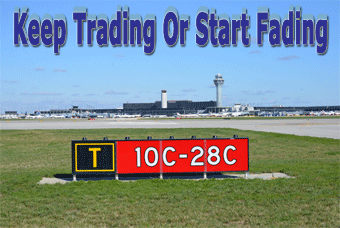

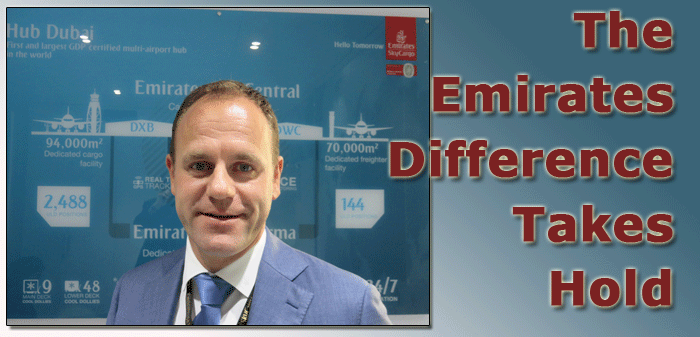
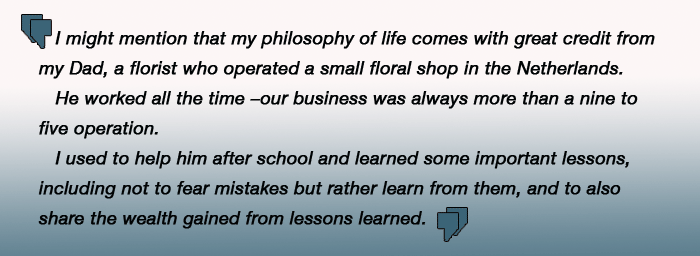
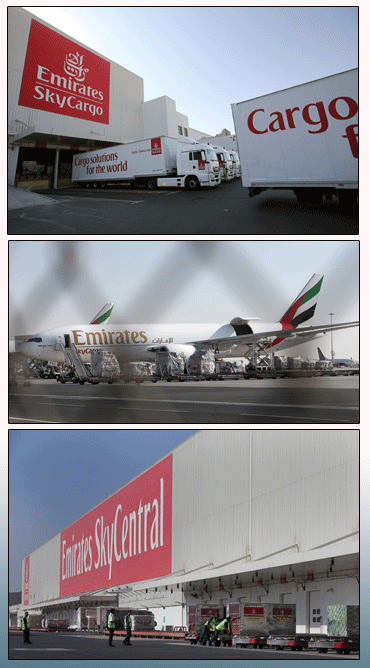
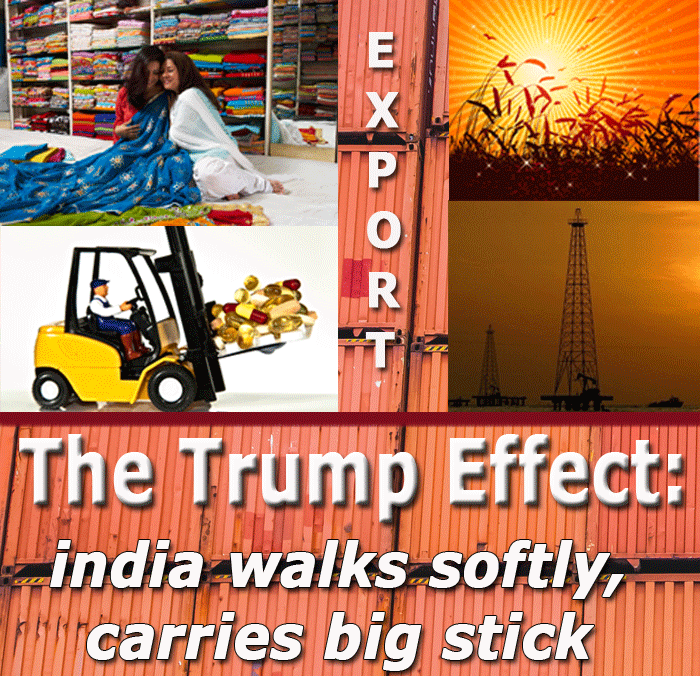
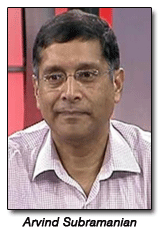 (
(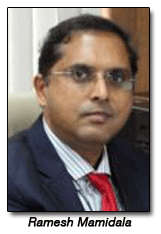 For the moment, despite growing concerns,
it seems to be business as usual,
meaning little-to-no impact up or
down in exports to the U.S. FlyingTypers
spoke to Ramesh Mamidala, CEO, Celebi
Delhi Cargo Terminal Management India
Pvt. Ltd, who said:
For the moment, despite growing concerns,
it seems to be business as usual,
meaning little-to-no impact up or
down in exports to the U.S. FlyingTypers
spoke to Ramesh Mamidala, CEO, Celebi
Delhi Cargo Terminal Management India
Pvt. Ltd, who said: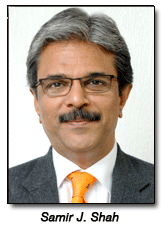
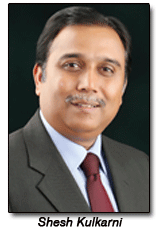 Indian freight forwarders, or at least
a section of them, however, have their
say here.
Indian freight forwarders, or at least
a section of them, however, have their
say here. 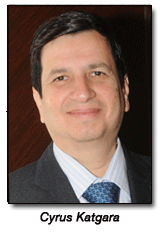 Jeena and Company Partner Cyrus Katgara:
“The key agenda of Trump is
to check terrorism and immigration
to protect jobs for Americans. He
also wants to check unfair trade practices
with special focus on China.”
Jeena and Company Partner Cyrus Katgara:
“The key agenda of Trump is
to check terrorism and immigration
to protect jobs for Americans. He
also wants to check unfair trade practices
with special focus on China.”
